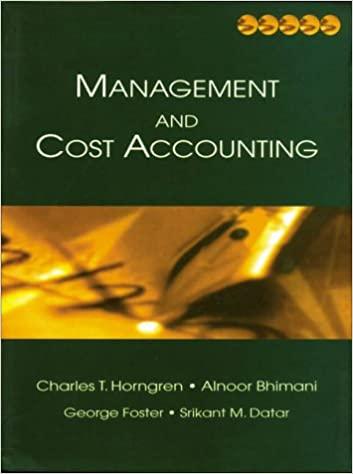Question
A manager must decide which type of machine to buy, A, B, or C. Machine costs (per individual machine) are as follows: Machine Cost A
A manager must decide which type of machine to buy, A, B, or C. Machine costs (per individual machine) are as follows:
| Machine | Cost | |
| A | $ | 40,000 |
| B | $ | 30,000 |
| C | $ | 80,000 |
Product forecasts and processing times on the machines are as follows:
| PROCCESSING TIME PER UNIT (minutes) | |||||
| Product | Annual Demand | A | B | C | |
| 1 | 18,000 | 4 | 2 | 1 | |
| 2 | 20,000 | 1 | 5 | 3 | |
| 3 | 20,000 | 5 | 6 | 6 | |
| 4 | 16,000 | 4 | 6 | 3 | |
Click here for the Excel Data File
a. Assume that only purchasing costs are being considered. Compute the total processing time required for each machine type to meet demand, how many of each machine type would be needed, and the resulting total purchasing cost for each machine type. The machines will operate 10 hours a day, 230 days a year. (Enter total processing times as whole numbers. Round up machine quantities to the next higher whole number. Compute total purchasing costs using these rounded machine quantities. Enter the resulting total purchasing cost as a whole number.)
Step by Step Solution
There are 3 Steps involved in it
Step: 1

Get Instant Access to Expert-Tailored Solutions
See step-by-step solutions with expert insights and AI powered tools for academic success
Step: 2

Step: 3

Ace Your Homework with AI
Get the answers you need in no time with our AI-driven, step-by-step assistance
Get Started


